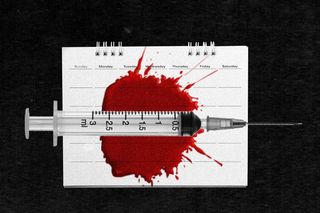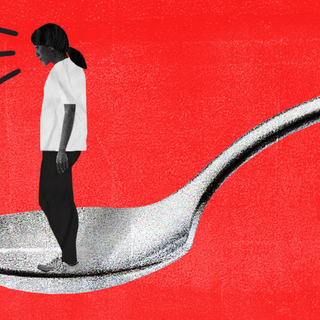
It’s Time to Study How Covid19 Vaccines Affect Menstrual Health: Experts
“Failing to thoroughly investigate reports of menstrual changes after vaccination is likely to fuel [vaccine hesitancy].”

“There is one potential side effect of Covid19 vaccines that has been reported consistently, and just as consistently ignored: changes to the menstrual cycles,” an article in Quartz reads.
Despite mounting anecdotal evidence like changes in flow, onset, or duration of periods as worsening of PMS symptoms, there is barely any research into how vaccines against the novel coronavirus can impact people’s menstrual cycles. But since periods are still considered a “women’s problem,” and medical science has routinely ignored women’s health, it’s hardly surprising that there’s not much research on the subject.
So far, medical conversations brush off irregularities in the menstrual cycle after being vaccinated as stress and trauma from surviving during a global health crisis. They also attribute this to lifestyle changes manifesting in diet and physical activity under lockdown. But, “if so many things can affect periods, why don’t we know more about how these vaccines — or any others — affect menstruation? It’s part of a long history of medicine not taking women’s bodies seriously,” an article in The New York Times argued in April.
And now, experts have begun questioning the data gap. They’re advocating for studies to ascertain the extent to which getting a jab can impact one’s periods. Writing an editorial in the British Medical Journal, Dr. Victoria Male, a reproductive immunologist at Imperial College London in the U.K., called for an investigation into the potential effects of Covid19 vaccines on menstrual health.
Related on The Swaddle:
Lockdown Stress Is Disrupting Menstrual Cycles
Dr. Male cites reports from more than 30,000 individuals to U.K.’s Medicines and Healthcare Products Regulatory Agency regarding post-vaccine period irregularities. A significant number of the messages were from people who had taken the Oxford-AstraZeneca vaccine, sold as Covishield in India. Two researchers in the U.S. are also documenting reports from nearly 140,000 people who claim to have noticed a change in their periods after getting a jab. Reports of period irregularities are emerging in India as well.
“Variation in menstrual cycles is surprisingly understudied, even though we know that they should respond to different kinds of stressors, including immune and inflammatory responses. Dr. Male makes several good points, and I’m especially glad she’s highlighting the safety of the vaccines,” Dr. Katharine Lee, a postdoctoral research scholar at the Washington University School of Medicine, told Medical News Today.
Experts are keen to understand what the potential effects are and why they’re occurring. This could help them gain deeper insights into how vaccines affect different interconnected parts of the human body. “The control of menstrual bleeding is complex with potential effects from the brain, ovaries, and uterus itself. It is plausible that the effects of either [a Covid19] infection or vaccination on the immune system could affect this control pathway, and any research would be greatly valued,” said Dr. Sarah Gray, an expert in women’s health. She has been working with the U.K.’s National Health Service for 15 years.
Related on The Swaddle:
Survey: Indian Women Unable To Access Menstrual Hygiene Products Under Covid19 Lockdown
Dr. Male also believes that understanding the link between vaccines and changes to menstrual cycles can also enable people to plan better. They could learn when to get jabbed, what to expect after it, and how to prepare for any changes in menstrual cycles affecting their day-to-day lives.
However, it is pertinent to note that the reported changes to people’s periods didn’t last beyond one or two cycles. So in no way are the experts encouraging menstruating individuals to refrain from getting a life-saving vaccination to avoid dealing with extremely short-term changes to their periods.
Moreover, Dr. Male feels an investigation could have the opposite effect rather than discouraging people from getting jabs. “Vaccine hesitancy among young women is largely driven by false claims that Covid19 vaccines could harm their chances of future pregnancy… Failing to thoroughly investigate reports of menstrual changes after vaccination is likely to fuel these fears,” she wrote.
Devrupa Rakshit is an Associate Editor at The Swaddle. She is a lawyer by education, a poet by accident, a painter by shaukh, and autistic by birth. You can find her on Instagram @devruparakshit.
Related


How Much Can Food Help People Heal From Trauma?
